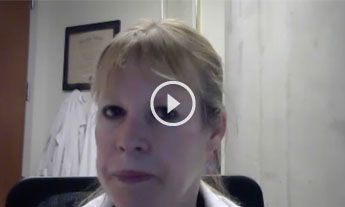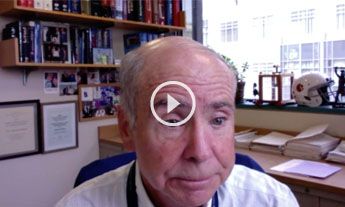Trending News on Targeted Oncology, Week of October 16, 2020
Targeted Oncology reviews trending news online for the week of October 16, 2020, including updates in oncology.

This week, the FDA granted approval to pembrolizumab (Keytruda) as treatment of patients with relapsed/refractory classical Hodgkin lymphoma. The FDA accepted an investigational New Drug Application (NDA) for an investigational CDK2/4/6 inhibitor for high-grade gliomas. A rolling New Drug Application was initiated seeking approval of a treatment for patients with myelofibrosis with severe thrombocytopenia.
A novel small molecule received a Fast Track designation for the treatment of locally advanced or metastatic solid tumors. The FDA also granted an Orphan Drug designation to a novel monoclonal antibody in multiple gastrointestinal malignancies.
These updates and others were trending this week:
Optimal Strategies for Treatment of Multiple Myeloma in Newly Diagnosed Patients
During a presentation at the National Comprehensive Cancer Institute 2020 Virtual Congress: Hematologic Malignancies, Shaji K. Kumar, MD, explained that each case of multiple myeloma requires a long-term strategy that starts with a strong approach in the frontline setting.
Expert Insights on Metastatic Breast Cancer Awareness Day: Treating Patients by Subtype
A number of targeted agents have been approved in the setting of metastatic breast cancer, which has allowed for more personalized treatment approaches and underscores the importance of genomic testing.
Patient-Reported Outcomes Confirm Tolerability of Selpercatinib in RET-Driven Thyroid Cancer
Lori J. Wirth, MD, of Massachusetts General Hospital, discussed the findings from an analysis of the patient-reported outcomes observed in the LIBRETTO-001 study of selpercatinib in patients with RET-driven thyroid cancers.
Tazemetostat Monotherapy Generates Durable Responses in Heavily Pretreated Follicular Lymphoma
Tazemetostat (Tazverik) as a single agent demonstrated clinically meaningful durable responses as treatment of patients with heavily pretreated relapsed/refractory follicular lymphoma, according to findings from a phase 2 study.
AUTO3 CAR T Cell Appears Promising as Treatment of Relapsed/Refractory DLBCL
The first CD19/22-directed dual targeting chimeric antigen receptor (CAR) T cell AUTO3 demonstrated a tolerable and best-in-class safety profile as treatment of patients with relapsed/refractory diffuse large B-cell lymphoma, according to findings from the phase 1 cohorts of the ALEXANDER study.
CAR T-Cell Therapy Appears Promising for Heavily Pretreated Multiple Myeloma
Natalie S. Callander, MD, of the University of Wisconsin, discusses the role of CAR T-cell therapy as treatment of patients with multiple myeloma.
Multiple Myeloma Treatment Paradigm Improved Markedly In Recent Years
Kenneth C. Anderson, MD, of Dana-Farber Cancer Institute, discusses how he has seen the treatment paradigm transform over the last decade in multiple myeloma.

